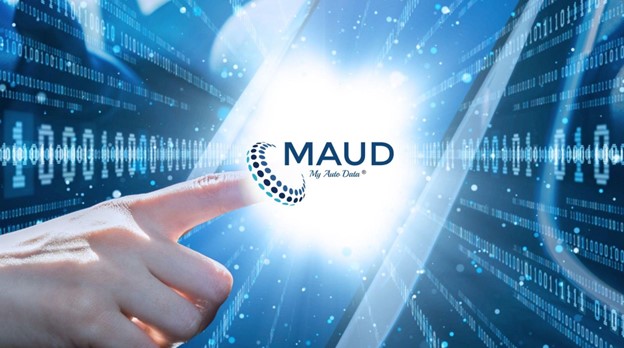In today’s digital world, Data is King. It is an incredibly valuable resource that enables so many transactions and developments across various industries. With connected vehicles becoming more common, the automotive industry can generate an abundant amount of data about vehicle usage, insurance policies, driving behavior, consumer satisfaction, and multiple other areas.
Despite the wealth of data, the automotive industry is not using it to its full potential and, at the same time, there are privacy issues that vehicle owners are concerned about, as well as various data protection laws such as the European Union’s General Data Protection Regulation (GDPR). Many companies profit unethically from their customers’ data by selling them without asking for the customer’s express consent and without compensating them.
Automotive data management platform MyAutoData (MAUD) began from the simple need of Germany-based entrepreneur Manfred Heiss to organize the documents and data generated by his vehicles, a car, and a motorcycle, in a centralized, digital location. After discovering that he was not the only one who wanted such a solution, Heiss harnessed his experience as a software manager for the automotive industry to create a platform that organizes data and gives the owner complete control over it, as well as allows them to market and monetize their data as they see fit.
MAUD’s users have access to their digital data vault, an especially encrypted area where all their vehicle data (up to 15 vehicles) is stored securely and in compliance with GDPR, which is one of the strictest data privacy laws in the world. It stores static data – vehicle specs, contracts, demographics, etc., the customer experience, and dynamic data, such as location data and driving behavior (also from non-connected vehicles including telematics data), which is gathered by an AI and machine learning application on the user’s smartphone.
Only the user has the key to their private data vault. MAUD does not sell or give access to others without the user’s consent. Having all this data in one place, users can view, analyze, and forecast their vehicle costs and usage through a convenient and detailed data dashboard.
Aside from accessing analytics, users can choose to share their data with interested parties and receive compensation and savings for it. There is a huge demand for automotive data today, from vehicle manufacturers, motor insurers, government traffic authorities, and many other organizations. To meet this demand, MAUD has created a consumer-to-business (C2B) marketplace, where millions of member drivers contribute a treasure trove of secure and anonymized data that enables automotive-related companies, market researchers, and government bodies to easily ascertain individual customer needs and behavior, helping them identify new digital business models or mobility strategies.
In a C2B model, consumers who need something, such as new tires or a bespoke insurance policy, can request it directly from the companies through the marketplace. Companies will be able to save on advertising and administration costs, while consumers can save time and even benefit from more attractive prices.
Currently, vehicle users are compensated for their data in cash, but MAUD is working on an option that enables payments in Greencoin, a sustainability-focused cryptocurrency hosted on a hybrid blockchain. According to Heiss, one of MAUD’s goals is to create an incentive system for drivers to use their cars less frequently and reduce CO2 emissions. By choosing to monetize their vehicle data, they can turn it into Greencoin, which can be used to pay for more environmentally friendly transportation, such as train rides. Unlike cash, which depreciates due to inflation, Greencoin’s value appreciates due to its finite supply.
Currently, MAUD is active in six countries, including the US, the UK, and Germany. It is looking to advance into a total of 25 major markets around the world, across Europe, North America, South America, and Asia. With the US at the forefront of automotive technology and investment globally, MAUD is strengthening its operations there and relocating its headquarters to the US.
With a development spanning 3 years, fully bootstrapped by its founder, MAUD is now in the process of fundraising and looking to partner with strategic investors who are ready to invest in the future. A leading global consultancy recently validated MAUD’s solution in a project that was funded by the German Ministry of Economic Affairs and Climate Action. A market survey revealed that such a solution has great potential and doesn’t exist yet.
“I created what would become MAUD simply as a way to organize my own personal data,” Heiss says. “However, I quickly realized the power that automotive-related data holds in today’s digital economy, and I observed that it isn’t being used to its full potential, and the most important part of the equation – the users – are not being fairly compensated. MAUD solves these problems by protecting our users’ data while giving them full control over when, how, and by whom it can be used. We are establishing a new and fair ecosystem that is no longer solely determined by companies, but where everyone wins. The faster we grow together, and the more people and companies participate, the greater will be our joint success.”







